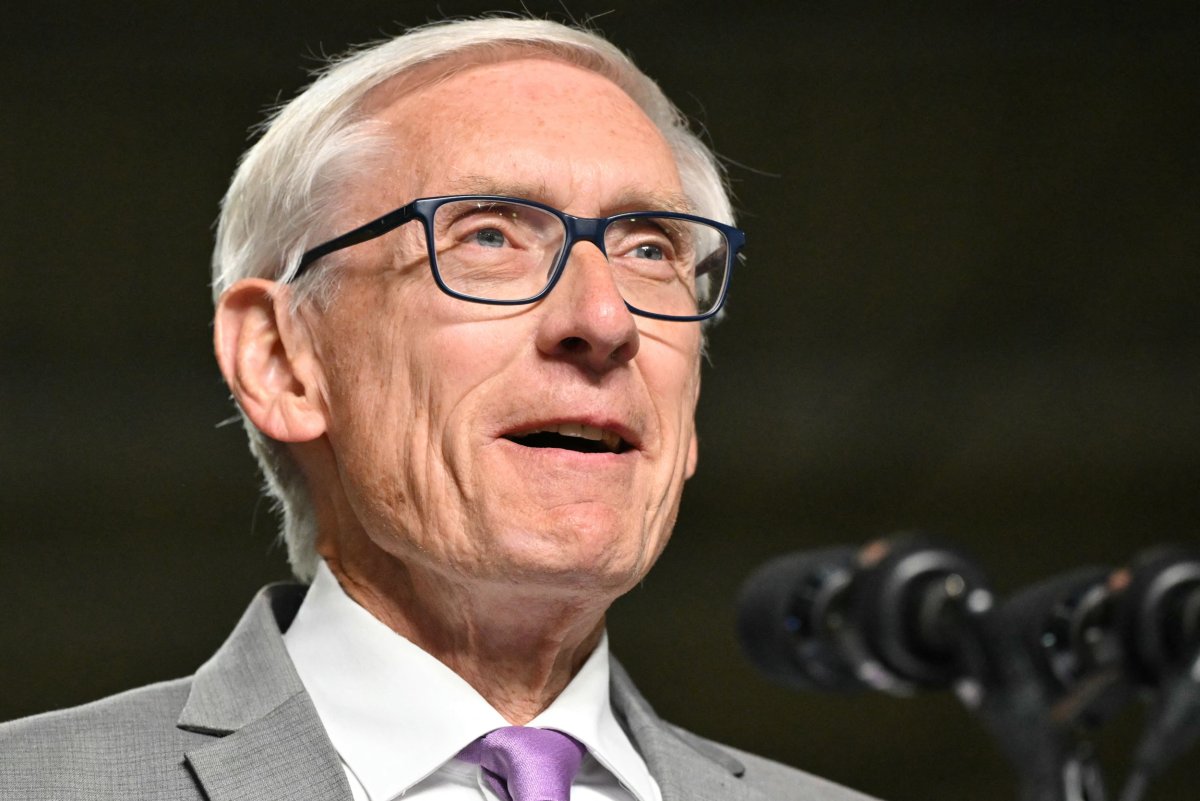The Wisconsin Supreme Court heard arguments on Wednesday in a case challenging Wisconsin Governor Tony Evers‘ partial veto which increased public school revenue for the next 400 years.
In 2023, Evers, a Democrat, used his partial veto power to increase how much revenue K-12 public schools can raise per student by $325 annually until 2425. The original language of the legislation applied the $325 increase for the 2023-24 and 2024-25 school years. Evers then vetoed the “20” and the hyphen to make the end date 2425.
The Wisconsin Manufacturers & Commerce Litigation Center, which handles lawsuits for the state’s largest business lobbying group, challenged the veto. The lawsuit is supported by the Republican-controlled state legislature.
Attorneys for legal scholar Richard Briffault, who is a professor at Columbia Law School, said in a filing with the Wisconsin Supreme Court ahead of Wednesday’s arguments: “The veto here approaches the absurd and exceeds any reasonable understanding of legislative or voter intent in adopting the partial veto or subsequent limits.”
That argument was cited during the oral arguments by Scott Rosenow, attorney for WMC Litigation Center, as well as justices of the liberal-leaning state Supreme Court.
Evers’ attorney, Colin Roth, argued Wednesday that the governor was simply using a longstanding partial veto that the law allows.

Wisconsin Governor Tony Evers speaks during an event at the Department of Public Works Field Headquarters in Milwaukee, Wisconsin on October 8, 2024. The Wisconsin Supreme Court heard arguments on Wednesday in a case challenging Evers’ partial veto which capped public school revenue for the next 400 years.
Mandel Ngan/AFP via Getty Images
Wisconsin’s partial veto was created in 1930 but weakened by constitutional amendments in 1990 and 2008 in reaction to vetoes made by former governors in both the Republican and Democratic parties.
The 1990 amendment prohibits the so-called “Vanna White” veto—named after the Wheel of Fortune word game show star—which allows governors to strike individual letters to make new words. In 2008, the “Frankenstein” veto, which allowed governors to strike words and numbers in two or more sentences to create a new sentence, was prohibited.
The lawsuit before the Wisconsin Supreme Court argues that Evers’ 2023 partial veto is banned under the 1990 amendment. However, Evers argued that the 1990 amendment only applies to eliminating individual letters to create new words, not eliminating digits to create new numbers.
“The governor is becoming the most powerful person in the state, arguably, to just make the law whatever he declares,” state Supreme Court Justice Rebecca Bradley said on Wednesday.
Meanwhile, Justice Rebecca Dallet said the initial reaction from anyone would be that a 400-year veto is “extreme.”
When legal scholars and others look at what Wisconsin Courts have allowed with partial vetoes, “they think it’s crazy because it is crazy,” Justice Brian Hagedorn said. “We allow governors to unilaterally create law that has not been proposed to them at all. It is a mess of this court’s making.”
In 2020, the Wisconsin Supreme Court, then controlled by conservatives, struck down three of Evers’ partial votes, but a majority of justices did not give clear guidance on what is allowed under the veto.
Justices seemed to agree during oral arguments that there needed to be limits on the partial veto but struggled with what those limits should be.
“It does feel like the sky is the limit, the stratosphere is the limit,” Justice Jill Karofsky said, referring to Evers’ veto powers. “Perhaps today we are at the fork in the road…I think we’re trying to think should we, today in 2024, start to look at this differently.”
Attorney Rosenow argued that the Wisconsin Supreme Court should strike down Evers’ partial veto and declare that the state constitution prohibits the governor from removing digits to create a new year or removing language to create a longer duration than what is approved by the state legislature, adding if the court does not do this, they would give governors unlimited power to change numbers in a budget bill.
A ruling in the case will be issued in the coming months.
This article includes reporting from The Associated Press.









